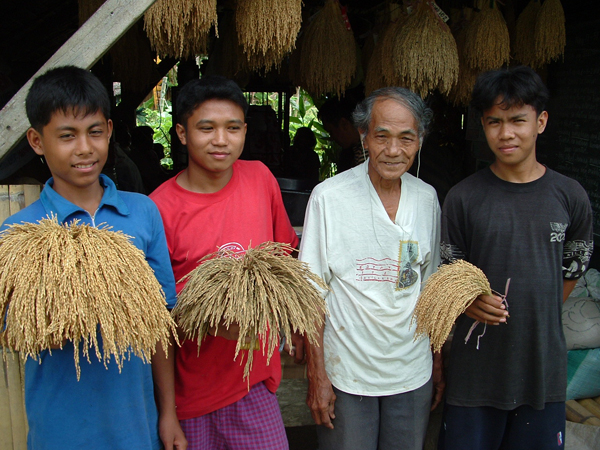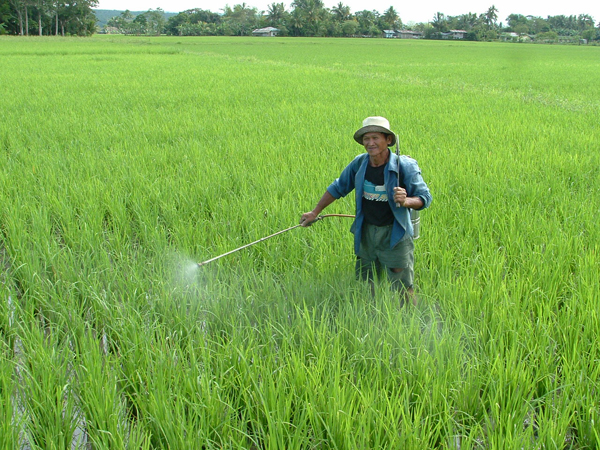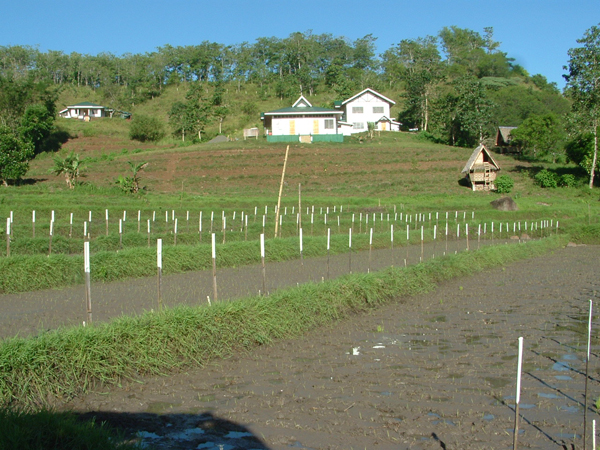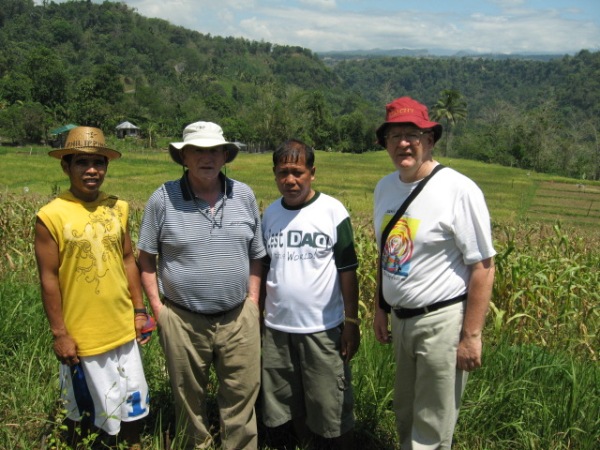MASIPAG And The International Year Of Biodiversity
By Fr Oliver McCrossan
MASIPAG is an acronym for: ‘Magsasaka at Siyentipiko para ang Pag-unlad ng Agrikultura’ (Farmers and Scientists in Partnership for Agriculture Development). The organization began in 1986. It is a farmer-scientist partnership that promotes genuine development of farmers through a pro-poor, sustainable approach. It is working to preserve the rich biodiversity of the Philippines. With over 30,000 farmer-members, MASIPAG’s work proves that even without the use of dangerous GMOs (genetically modified organisms), farmers have a means of producing safe, clean and nutritious food.
Father Oliver McCrossan is on the far right.
The United Nations has proclaimed 2010 The International Year of Biodiversity. Many people all over the world are working to safeguard our irreplaceable natural wealth and reduce biodiversity loss. This is vital for our current and future human well-being. We all rely on the great diversity of life to provide food, fuel, medicine and other essentials we simply cannot live without. Yet this rich diversity is being lost at a greatly accelerated rate because of human activities. This impoverishes us all and weakens the ability of the living systems on which we depend to resist growing threats such as climate change.

The rich biodiversity of the Philippine archipelago is in grave danger of disappearing. MASIPAG is actively involved in protecting this biodiversity. The Masipag Biodiversity Center (MBC), located in the province of Bukidnon in Mindanao, has this as its mission and goal. The center was opened in October 2005. The total area is 9.5 hectares. Over 600 varieties of native rice collected from all over the Philipppines are being maintained, cultivated and conserved. Native varieties of maize and vegetables are also being cultivated. We are now conserving and breeding our native chickens, goats, pigs and ducks.

Like so many of their sisters and brothers around the world, small farmers in the Philippines face an uphill struggle to survive. In the words of one farmer, ‘When I have paid back my loans for seeds, fertilizer and pesticides I have very little left to feed my family’. Conventional agricultural practices that rely on the heavy use of fertilizers and pesticides have created a polluted environment and left farmers with huge debts. It’s no wonder that so many farming families have left the countryside to eke out a miserable existence in the big cities.
The MBC is actively helping the small farmers of Mindanao to farm in ways that are both sustainable and viable. The aims of the MBC are: the protection and conservation of our biodiversity, to provide a place where the organic farming technologies of our farmers can be displayed and a center for alternative and renewable energy systems.

The MBC is a training center for farmers from all over Mindanao and other parts of the Philippines. We have had visitors in recent years from Thailand, Myanmar, China and Indonesia interested in learning about the Masipag farming system.
Climate change is the biggest challenge to humankind today. It is already happening through more frequent droughts, severe storms and other extreme climatic events. The protection of biodiversity of seeds and crops and the development of organic agriculture are important ways to mitigate against climate change. The Masipag Biodiversity Center and farmer organizations all over the Philippines are providing solutions.
Progress is being made. This is not progress created in the laboratories of corporations or in the parliaments of rich countries or in the halls of diplomatic missions: it is progress created in places like the MBC and in the fields of small-scale farmers in the Philippines. This is a cause for hope, not only for our farming families but for all those who care about our world.
Fr.Oliver McCrossan is Adviser to Masipag in Mindanao.
Email address: ollie.mccrossan@yahoo.com.ph

